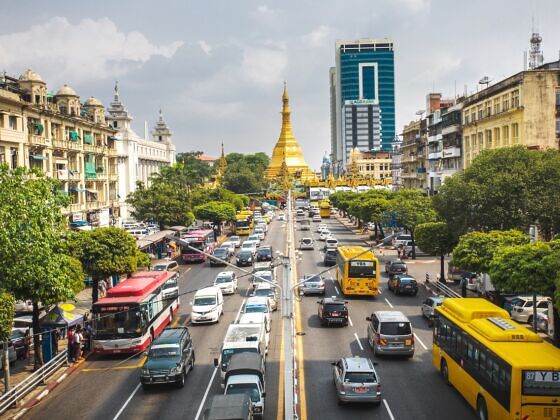Many foreigners are here to ease burdens. They enter the Myanmar maw with exceptional degrees and contracts with inspired organisations. They are solid and resolved. They know what they are here for. For others the equation behind the motivation is unclear, since great need and great uncertainty blend together to present opportunity in Myanmar. They are the ones comfortable with risk. The outlook that something will come of their time in Myanmar is justification enough to be here.

For the most part foreigners arrive with little knowledge and struggle to feel their way into Myanmar’s social, economic, and political cultures. Soon, the guidebooks stop making sense. Lofty reports of transformation and change will distort their firsthand experiences on the streets. A cognitive dissonance will kick in. Their first meetings will be cordial and polite, but reveal little of the enormity of the personal and professional tasks ahead.
A few days in, the business analysts will begin digesting rubbery figures, patchy field research, and reports written mostly from fly-in-fly-out consultants. Teachers will shake their heads at the dated curricula they have been asked to teach, and NGO workers will face mountains of grant applications for projects proposed long ago, but years away from delivering “capacity” and “sustainability.”
In the space of a week or two, the fortunate among these foreigners will migrate from their guesthouses and hotels. They will be delivered into small respectable apartments, assisted by a posse of brokers increasingly calculating in their recommendations. Head offices will baulk at the extortionate demands of upfront rent, then have their hands forced: “I know, but we need to make this transaction today,” the newcomer will repeat. “The broker said three other expats are waiting in line to take it today. It’s our only option.”
Learning the ropes, they will ask around expat circles for maids and cleaners at the “right price.” And politely listening, they will one by one be told in a firm voice that, in no uncertain terms, as if they are at risk of breaking ranks with a critical life support system, “Don’t pay more than that, it will only encourage inflation.”
The conscientious will line up Myanmar teachers after hours and have a crack at learning the language. It will reassure them that their assimilation is on track. Needing to fit in, the words “can I have a draught beer please?” will often be the first phrase mastered, with “another glass” commonly the second.
In time, they will become adventurous and frequent local restaurants with teenage waiters, buy vegetables from farmers on the streets who have borrowed money to cross the Yangon River from Dalla, and purchase cheap t-shirts and DVD movies, contravening international copyright laws. In short, they will become an active part of a grey economy.
Gathering in hotels owned by wealthy local businessmen, they will discuss cronyism and corruption whilst drinking spirits which have generated little if any tax for the government. They will catch taxis home late at night after haggling the driver down 500 kyat, perhaps denying him an extra plate of protein for dinner at the street stall.
In the weeks ahead, they will attend conferences organised by big corporations and NGOs to tackle local issues. For the most part, the conferences will be held in English. The few questions from the floor will come from foreign journalists and a few talented Myanmar engaged for their cross-cultural skills. Most will play along and drop in the right buzz words, indicating they belong to a growing elite here to rescue Myanmar from itself.
After a few short months, the hidden burdens of their time in Myanmar will loom large. It will consume many and burn a few out. A strange carnival atmosphere of regular socialising and drinking will soothe dark moods and temporarily fill the defeatist vacuums. Lone dialogues with taxi drivers will console others that it’s not easy in Myanmar. Many will fall asleep knowing that “it is still difficult in Myanmar, it will take time.” A few will pack their bags and leave. The determined will struggle on, revelling in the obstacles, mastering the ups and downs of not quite fitting in, not quite meeting their original objectives.
After a year or two, the long-term expats won’t see the beggars the same way. After a year or two, the cheeky young monks won’t make them smile. After a year or two, the newest restaurant opening won’t pull them in. To preserve they will withdraw and settle. They will come to accept the limits of it all. The hype won’t bother them. The promise won’t motivate them. They will have accepted their odd expat life, their awkward place in the chimera that is Myanmar today.